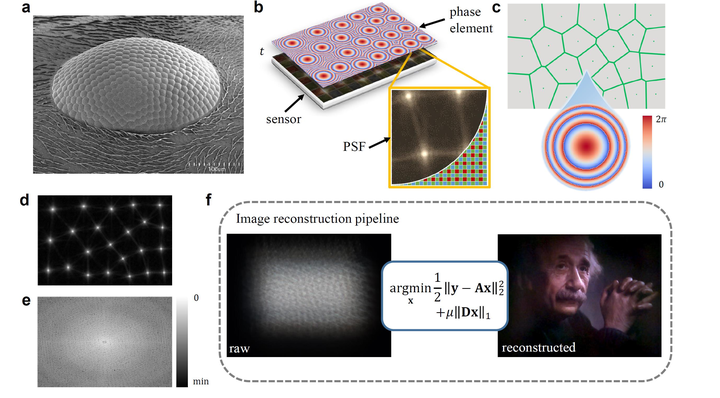Diffractive lensless imaging with optimized Voronoi-Fresnel phase

Abstract
Lensless cameras are a class of imaging devices that shrink the physical dimensions to the very close vicinity of the image sensor by replacing conventional compound lenses with integrated flat optics and computational algorithms. Here we report a diffractive lensless camera with spatially-coded Voronoi-Fresnel phase to achieve superior image quality. We propose a design principle of maximizing the acquired information in optics to facilitate the computational reconstruction. By introducing an easy-to-optimize Fourier domain metric, Modulation Transfer Function volume (MTFv), which is related to the Strehl ratio, we devise an optimization framework to guide the optimization of the diffractive optical element. The resulting Voronoi-Fresnel phase features an irregular array of quasi-Centroidal Voronoi cells containing a base first-order Fresnel phase function. We demonstrate and verify the imaging performance for photography applications with a prototype Voronoi-Fresnel lensless camera on a 1.6-megapixel image sensor in various illumination conditions. Results show that the proposed design outperforms existing lensless cameras, and could benefit the development of compact imaging systems that work in extreme physical conditions.